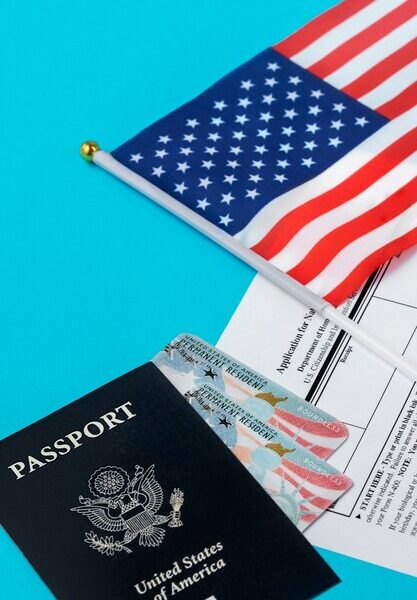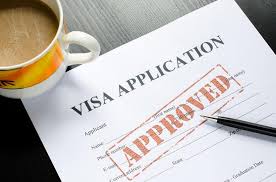There are different U.S. visa categories. Travelling to the U.S. will require that you understand the U.S. visa categories. It can be an exciting opportunity for education, tourism, work and professional growth. However, a proper understanding of the intricacies of the different categories of US visas is necessary for a seamless visa application process. Understanding the types of visas will guide you in choosing the right visa for your journey. U.S visas are divided into two crucial categories:
- Non-immigrant visa
- Immigrant visa
Non-immigrant visa
Nonimmigrant visas are issued to non-US nationals who intend to stay in the United States for study, tourism, work, or business. They are for temporary visits only and are not for permanent relocation. Nonimmigrant visas are categorised based on the purpose of travel.
Business and Tourism Visas
There are two visa types under this category: B-1 and B-2 visas
- A B-1 visa is for business visitors to attend meetings, conferences or for contract negotiation.
- B-2 is for tourists visiting for recreation and leisure, non-US nationals visiting their families or for medical treatment.
Work Visa
- The H-1B visa is for specialists in a chosen field. It is for nationals with high educational qualifications or competence.
- H-2A visa is issued to temporary agricultural workers. The H-2A visa enables employers to bring nationals into the US on seasonal agricultural appointments. This visa type is specially designed for agricultural workers.
- H-2B is for non-agricultural nationals on a temporary visit to the US.
- L-1 visas are for multinational companies workers transferred to a branch in the US.
- O-1 visas are for individuals with exceptional abilities, skills and expertise in their chosen field e.g. engineering, arts, science, medicine, etc.
Student Visa
- F-1 visas are issued to students enrolled in any US educational setting for a full-time program.
- M-1 visas are mainly for non-academic and vocational students enrolling in non-academic programs such as technical training and vocational schools.
- J-1 visas are for visitors who enroll in approved programs such as students visiting for internships.
Special Categories
- K-1 visas are issued to fiances of US citizens who wish to marry within 90 days of entering the US.
- R visas are for workers employed by religious organisations in the US.
- I visas are for foreign journalists media personnel and representatives visiting the US for a summit, training or any other official reason.
- T visas are issued to victims of human trafficking
- U visas are for victims who have suffered significant mental or physical damage due to abuse or violations.
Immigrant Visas
Immigrant visas allow foreign nationals to reside in the US. permanently. Individuals hoping for long-term residency usually opt for immigrant visas. The reasons for permanent relocation to the US vary from person to person, but they mostly include education, work, family, etc.
Family-based Immigrant Visa
Family-based visas are issued to nationals with close family ties with US citizens or lawful permanent residents. They are of two main categories:
Immediate Relative Visa
These visas are obtainable only by immediate members of a US citizen. These include the following groups:
- IR-1 for the spouse of a US citizen.
- IR-2 for an unmarried child under 21 of a US citizen.
- IR-3 for orphans adopted by US citizens or organisations
- IR-4 visas are issued to orphans to be adopted in the US by a US citizen.
- IR-5 is issued to parents of a US citizen at least 21.
Family Preference Visas
These visas are for more distant family relationships. These include the following:
- F1 visas are for unmarried sons and daughters of US citizens.
- F2A visas are issued to lawful residents in the US. this includes their spouses and children.
- F3 for married sons and daughters of US citizens.
- F4 visas are issued to siblings of US citizens.
Employment-based Immigrant Visa
These categories of visas are for foreign nationals who have job offers from US employers or possess exceptional abilities and expertise in specific fields. these categories of visas include the following:
- EB-1 is issued to priority workers because of their exceptional abilities and expertise in arts, education, sports, sciences, etc.
- EB-2 is issued to professionals competent in their chosen fields and those with advanced degrees.
- EB-3 visas are issued to skilled workers and other professionals.
- EB-4 visas are for religious workers and other special immigrants.
- EB-5 visas are issued to investors and entrepreneurs who contribute significant capital to a US business and create job opportunities.
Diversity Visa Program
The diversity visa (DV) program is designed for countries with low immigration tastes to the US. through a lottery system, a limited number of visas are made available each year, allowing those eligible to apply for permanent residency in the US.
Understanding the types of visas obtainable in the U.S. is crucial as you seek temporary or permanent relocation to the U.S. The different types of visas are issued based on the purpose of a visit and the duration. The type of visa you choose can impact on your visa application. However, you must define your purpose of travel to make the right visa choice.






